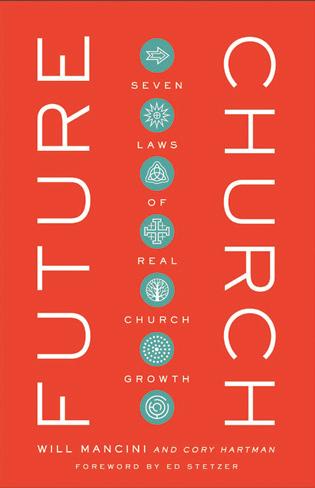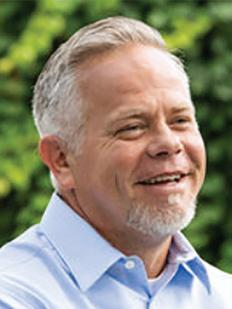
3 minute read
Summit goes
online Church leadership after pandemic
Springfield | Challenges presented by the pandemic are proving to be growth opportunities for IBSA conferences and leadership events. Because of limitations on attendance in a single location, the 2021 Illinois Leadership Summit will be available online for the first time.
Advertisement
Religious Freedom
Controversial standards proposed
Teachers may be graded on support for ‘diversity’
Future Focus: Leading Your Church Beyond COVID-19 will be the theme of the event on Jan. 19-20. Guest speaker will be Dave Rhodes, a leadership expert, coach, and co-founder of Future Church Co., an organization designed to “help the church embody the movement that Jesus founded.” Rhodes is also pastor of discipleship and movement initiatives at Grace Fellowship Church in Atlanta.

DAVE RHODES
Illinois Leadership Summit
More than 20 Illinois pastors and ministry practitioners will also lead several breakout sessions in four ministry tracks.
Held annually at the IBSA building in Springfield, the Illinois Leadership Summit has hosted more than 200 pastors and church leaders each year since 2015.
The sessions will be shown for smaller groups at hub locations across Illinois, hosted by IBSA’s zone consultants, and available online to watch live or to view afterward.
For more information or to register for the 2021 ILS, contact Aubrey Krol@IBSA.org, or visit IBSA.org/ ILS2021.
Recomended resource
Springfield | The Illinois State Board of Education (ISBE) has proposed a new set of rules some say would require teachers to abandon their religious beliefs. The “Culturally Responsive Teaching and Leading” standards touch on issues such as sexual orientation, gender identity, and race-based privilege in what supporters call an effort to encourage support for diversity in school age children. But Christian and conservative leaders around the state are concerned the standards will require teachers to affirm ideas in conflict with their own religious beliefs.
“Essentially, the Board of Education putting these standards in place would guarantee a liberal bias in teaching, and would commit a civil rights violation on the basis of religion,” Bob Vanden Bosch, executive director of Concerned Christian Ministries, warned in an e-mail.
Among the goals of the proposed rules is for teachers to “ensure the diversity of their student population is equally represented” in an effort that “members of the student population feel seen, heard, and affirmed.” ISBE spokesperson Jackie Matthews told Illinois Capitol News, “Culturally responsive practices are especially important in better supporting Illinois’ LGBTQ+ youth, who disproportionately experience bullying and are more likely to attempt suicide.” Matthews further noted 52% of students in the state represent minority groups while the majority of teachers are “white and female.”
The standards say that teachers who are considered successful will “understand and value the notion that multiple lived experiences exist, that there is not one ‘correct’ way of doing or understanding something, and that what is seen as ‘correct’ is most often based on our lived experiences.” Teachers will also be expected to examine their own motivations and worldviews, and to “explore their own intersecting identities, how they were developed, and how they impact daily experience of the world.”
Critics of the standards say they violate teachers’ rights. “Teachers who have a certain faith or religious view may be being forced to go against that view,” Ralph Rivera of the Illinois Pro-Family Institute told NPR. “For example, it states they have to affirm various student ideas or identities. So what if they disagree with that, they can’t affirm something that goes against their religious belief.”
In an article for the Illinois Family Institute, Laurie Higgins asked if it was the “proper role of lawmakers, the ISBE, or departments of education to require teachers” to affirm all “identities,” and which identities teachers would be expected to affirm. Higgins noted private school educators would also be affected by adoption of the standards.
The proposed rules were published Sept. 11 with the state board scheduled to vote on them Dec. 16. If approved, the rules will be published in the Illinois Register a second time and a 45-day public comment period will begin. Then, the General Assembly’s Joint Committee on Administrative Rules (JCAR) would review them. Should the committee approve the proposed standards, they would become part of Illinois teacher preparation programs.
Vanden Bosch urged Christians to contact JCAR members to ask them to reject the proposed standards. A list of JCAR members along with their contact information is available at ilga.gov/commission/jcar/member. pdf.

– Lisa Misner









